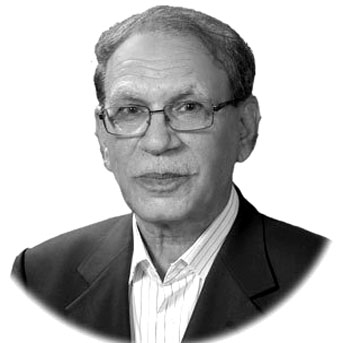Mohammad Jamil
AHEAD of anniversary of abrogation of Articles 370 and 35-A on 05 August, curfew had been imposed in anticipation of protests to observe the day as Black Day. Last, year, the state was split into two centrally-administered regions and its semi-autonomous status was revoked. The decision to revoke Article 370 which guaranteed Kashmir special status was rejected by the people of Kashmir. Thousands were detained amid which curfew and security forces often clashed with civilians. Jammu and Kashmir is under siege for the last one year, and Kashmiris continue to give unprecedented sacrifices for their freedom. Despite atrocities committed on them, they vow not to bow to the occupiers, and stand tall. It has long been one of the world’s most dangerous flashpoints and is a highly militarized area, and Narendra Modi’s policies have made the situation volatile and dangerous for regional peace and the world peace at large.
Thousands of people rallied in Pakistan’s major cities on August 5 to mark the first anniversary of scrapping Article 370 to deprive Kashmir of the special status. Political leaders, trade unions, lawyers, and rights activists attended the rallies to condemn a repressive Indian decision. Pakistani President Arif Alvi and Foreign Minister Shah Mehmood Qureshi led the largest rally in the capital, Islamabad, where protesters chanted anti-India slogans and urged world powers to intervene to stop India from genocide and changing demography of the Muslim-majority India Illegally Held Jammu & Kashmir. The Indian Government had announced on 5 August 2019 that it was changing the status of territory under its control in Kashmir. Islamabad had rejected what it saw as an annexation of Kashmir by India, demanding that issue should be resolved through a plebiscite conducted under UN aegis. PM Imran Khan said the Kashmiri people have a right of self-determination as per UNSC resolutions.
Meanwhile, a special meeting of the United Nations Security Council (UNSC) was convened in New York on Wednesday to discuss deteriorating human rights situation in India-occupied Jammu and Kashmir (IOJ&K). No official details had been released of the meeting which was held behind closed door with Indonesian representative in chair. China which is among the five permanent Security Council members pushed for the meeting owing to reports of widespread human rights violations and crippling curfew in IoK. The situation has worsened in the occupied territory since India unilaterally annexed it last year on 5 August and placed extensive security clampdown in the Muslim majority areas to quell any popular backlash. Countrywide rallies were held across Pakistan and around the globe by Pakistani and Kashmiri diaspora to condemn Indian action on its first anniversary.
The diplomatic source said that Wednesday’s meeting was result of Prime Minister Imran Khan’s diplomatic onslaught against the Indian action and a step to bring back the Kashmir issue on the UN agenda. This was the fourth such meeting on Jammu and Kashmir since August 16 last year. Two other closed-door meetings were held in December 2019 and January this year. Meanwhile, Foreign Minister Shah Mehmood Qureshi welcomed the meeting held at the United Nations Security Council on Pakistan’s request to discuss the Jammu and Kashmir dispute, calling it a mark of solidarity of the international community with the people of India Illegally Occupied Jammu and Kashmir (IIOJK). “We are grateful to all the members of the UN Security Council, especially China for their support in organising the meeting in the Council,” the Foreign Minister said in his remarks after the UNSC held meeting on Jammu and Kashmir dispute.
The OIC and Arab countries have been mute over the issue. It was in this backdrop that Foreign Minister Shah Mehmood Qureshi asked Saudi Arabia-led Organisation of Islamic Cooperation (OIC) on Wednesday to stop dilly-dallying on convening a meeting of its Council of Foreign Ministers (CFM) on Kashmir. Appearing in a talk show on ARY News, the foreign minister said: “I am once again respectfully telling OIC that a meeting of the Council of Foreign Ministers be convened. If you cannot convene it, then I’ll be compelled to ask Prime Minister Imran Khan to call a meeting of the Islamic countries that are ready to stand with us on the issue of Kashmir and support the oppressed Kashmiris.” Mr. Qureshi said Pakistan had skipped Kuala Lumpur Summit last December on Saudi request and now Pakistanis expect from Riyadh to show leadership on the issue.
Within two weeks after India abrogated Articles 370 and 35-A, Prime Minister Narendra Modi was honoured with the ‘Order of Zayed’, the UAE’s highest civilian award as a mark of appreciation for his efforts to boost bilateral ties between the two nations. Saudi Arabia was looking at investing $100 billion in India in areas of petrochemicals, infrastructure and mining among others, considering the country’s growth potential. But Pakistan is not alone, and its friends have supported Pakistan’s stand on Kashmir. Chinese Foreign Ministry’s Spokesperson Wang Wenbin during his regular briefing said: “Our position is consistent and clear. This issue is a dispute left over from history between Pakistan and India that is an objective fact established by the United Nations Charter, United Nations Security Council’s resolutions and bilateral agreement between Pakistan and India,”.
He said, any unilateral change to the status quo was illegal and invalid and emphasised that the issue should be resolved peacefully through dialogue and consultation between the parties concerned. In February 2020, Turkey’s President Erdogan had said “Kashmir is as important to Turkey as it is to Pakistan”. Turkey, Malaysia and China are the three main countries that support Pakistan to get its name removed from the grey list. India was unhappy with Turkey and Malaysia for their support to Pakistan, but both countries upheld principles instead of giving overriding consideration to economic interests.
—The writer is a senior journalist based in Lahore.









